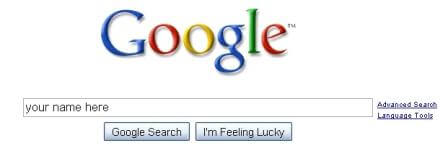Ken Kratz is probably best known as the local prosecutor who put Stephen Avery in prison for murder in Manitowoc County, WI, as documented in the Netflix series “Making a Murderer.” For this and several other reasons, he’s got a pretty comprehensive presence on the Internet: a Google search for “ken kratz” comes up with about 190,000 hits, few of which paint a flattering or positive picture. From bad Yelp reviews to accusations of prosecutorial malpractice to coverage of a long-ago sexting scandal, it’s easy to see why Ken Kratz might want Google to remove links to those negative articles and posts.
In the United States, that simply isn’t possible. U.S. law doesn’t allow for the removal of Internet search results, and while individual websites may remove articles or posts that are considered defamatory, that doesn’t mean that Google or other search engines won’t still show cached or historical versions of those documents. For that type of removal, one has to look to the European Union’s “Right to Be Forgotten” law.
In 2012, Article 17 of the draft European Data Protection Regulation first detailed the “right to be forgotten,” and a 2014 ruling in the European Court of Justice applied this rule to search engines: an individual has the right to request that Europe-based search engines like google.co.uk remove links to outdated, negative articles and posts about her. But what would that mean for Ken Kratz?
Right to be forgotten petitions have been most successful when it comes to inadvertent, outdated, or unintentional links. For instance, in the United Kingdom and France, people convicted of minor crimes who have completed their sentences can petition to have links to their court records removed from Europe-hosted search engines (google.fr, for example) and usually have those petitions granted, while in the United States, there is no mechanism to remove that data from easy access. It should be noted that the websites that hold this data are under no obligation to remove it from their sites; the responsibility is on the search engine to remove the link to the data. The information will still exist unless the individual website removes it directly. The intended effect is just to make that information less accessible in a casual search. Notably, a search through the U.S.-based google.com will still display the results removed from a google.co.uk search, and U.S. residents can’t petition for their search results to be removed from European search results: this ruling only applies to E.U. residents.
However, for data that a person has uploaded himself or that a person is responsible for transmitting (explicit photos of oneself uploaded to adult websites, for instance, or an offensive comment posted to an article) that that person now regrets, the right to be forgotten generally won’t be applied. The same goes for relevant professional information and information that’s considered socially important. While Google hasn’t explicitly stated its determining policies, it appears that if the content is something a petitioner has personally produced or is directly responsible for, there is little to no chance of it being removed from results.
Sophie Curtis’s May 13, 2015 article on telegraph.co.uk (“EU ‘right to be forgotten’: one year on”) lists some examples of petitions brought before Google to be removed from its European search results, along with Google’s decisions on them:
- An individual who was convicted of a serious crime in the last five years but whose conviction was quashed on appeal asking for an article about the incident to be removed (approved)
- A high ranking public official asking for recent articles discussing a decades-old criminal conviction to be removed (denied)
- A priest convicted for possession of child sexual abuse imagery asking for articles reporting on his sentence and banishment from the church to be removed (denied)
- A political activist who was stabbed at a protest asking for a link to an article about the incident to be removed (approved)
- A woman requesting that a decades-old article about her husband’s murder, which included her name, be removed (approved)
- A doctor requesting the removal of more than 50 links to newspaper articles about a botched procedure (denied)
- A man requesting the removal of a link to a news summary of a local magistrate’s decisions that included the man’s guilty verdict. Under the UK Rehabilitation of Offenders Act, his conviction has been spent (approved)
The general coverage of Ken Kratz definitely hasn’t been flattering, but it by and large also hasn’t been fraudulent, and most of it is a result of his own actions. Almost more to the point, much of the negative coverage has to do with Kratz’s professional ethics and reputation, and the above cases strongly suggest that this type of coverage would not be eligible for removal from search results. It’s certainly possible that he could successfully petition for the removal of direct links to individual defamatory or false reviews, but a petition to remove a link to his general Yelp reviews, because those reviews also include honest feedback, would almost certainly not be granted.
The right to be forgotten and its implementation are still very, very new in the grand scheme of things, and as more and more determinations are made, more trends will become apparent. Because the ruling only states that “inaccurate, inadequate, irrelevant or excessive” information must be removed from search results but doesn’t specify what that exactly means, there’s a lot of wiggle room for Google and other search engines to interpret it. There aren’t any hard and fast rules, and there isn’t a lot of precedent for petitioners to use for guidance, but the more petitions that are reviewed, the more patterns will emerge.
